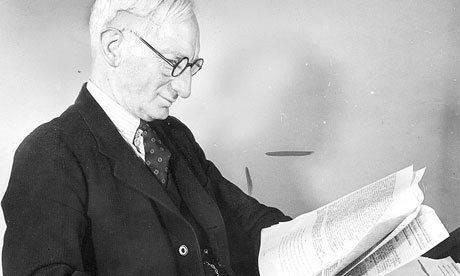This line is an usual retort by those opposed to Obama Care. This faux insurance health exchange will make insurance markets uncompetitive and the government will sweep in and impose a single payer system. This is from Texas Governor Rick Perry's new book, "Fed Up".
We are fed up with a federal government arrogant enough to declare it knows more about our health than our doctor and that is willing to risk the best health care system in the world while blatantly lying that it is not on the path to a single-payer, government-run system.[1]
However the trend is to leave Beveridge models (single payer systems) for Bismark models (individual mandates). As far as I have been able to tell, the United States would be the first Bismark model to become a Beveridge, if the fears are true. Some British are thinking about moving from a Beveridge to a Bismark. Here is an argument that I found on AdamSmith.org.
Bismarck beats BeveridgeWritten by Tom CloughertyThursday, 01 October 2009 06:030 Comments and 0 ReactionsThe Euro Health Consumer Index (ECHI) 2009 was released this week, and got lots of media coverage in the UK because it ranked the NHS 14th out of 33 countries and said the British health service was let down by waiting lists and "uneven quality performance". Only 4 counties in the EU15 (Western Europe, roughly speaking) got lower scores – Italy, Spain, Greece and Portugal.
The report is full of interesting information, but one point (on p9) particularly interested me. In their words, "Bismarck Beats Beveridge – yet again!" To explain:Bismarck healthcare systems are "based on social insurance, where there is a multitude of insurance organizations... who are organisationally independent of healthcare providers." They are named after Otto von Bismarck, who founded the German welfare state.
Anyway, the point the reports makes is that, "Looking at the results of the EHCI 2006 – 2009, it is very hard to avoid noticing that the top consists of dedicated Bismarck countries, with the small-population and therefore more easily managed Beveridge systems of the Nordic countries squeezing in. Large Beveridge systems seem to have difficulties at attaining really excellent levels of customer value."The following list shows the rankings of Western European healthcare systems according to their 2009 score. TheBismarck countries are in bold:(1) Holland, (2) Denmark, (3) Iceland, (4) Austria, (5) Switzerland, (6) Germany, (7) France, (8) Sweden, (9) Luxembourg, (10) Norway, (11) Belgium, (12) Finland, (13) Ireland, (14) UK, (15) Italy, (16) Spain, (17) Greece, (18) Portugal.Clearly there is something in what the authors of the ECHI say. They suggest two points which could explain the comparative underperformance of Beveridge systems:(1) Managing organizations of this size (the NHS employees 1.5m staff) requires management skills which just don't exist in the public sector. (I'd say they are extremely rare in the private sector too.)(2) The primary loyalty in Beveridge organizations tends to be to politicians and other top decision-makers, rather than patients.Adopting a competitive social insurance system like Holland's would be a huge step forward for the UK, even if – in an ideal world – I would prefer something based on medical savings accounts. You can read more about it here, in our excellent 2002 report NHS Reform: towards consensus?[2]
P.S. - A couple of obvious things need to be stated. Obama Care is not a true Bismark model in a couple of ways. One, we have many single payers systems in the country already: Indian Health Service, Medicare, Medicaid, and Veterans Administration. Medicare also has a Medicare Advantage with a private insurance option. These private insurers charge the government 14% more per senior, basically what the Republicans thought the public option would do. Two, in Obama Care the employers pick the insurers for most Americans. In a true Bismark model, the individual would pick their own insurer, thus forcing more competition.
Cigna CEO: Don't repeal U.S. health law (CATO calls it "ObamaCare = A Bailout for Private Insurance Companies") Cigna will do just fine. Also remember Cigna once blackmailed a hospital into not performing a surgery on a child. This is still legal under Obama Care.[3]


No comments:
Post a Comment